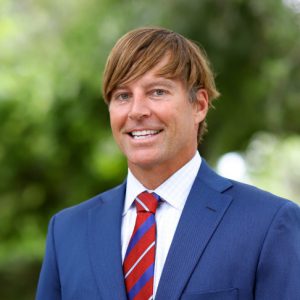When a loved one requires long-term care, families want to find the best facilities the resident can call home. A nursing home should employ caring and attentive staff and provide adequate living conditions that keep residents comfortable and content.
Despite these needs, nursing home staff and administrators may engage in abusive or neglectful behaviors that harm residents.
If you believe a nursing home has abused or neglected a loved one in Charleston, Hughey Law Firm is here to help you. Our Charleston nursing home abuse lawyers have the experience and knowledge to pursue compensation for any abuse and neglect from nursing home staff and facilities.
Charleston Nursing Home Abuse Guide
- Compensation for Nursing Home Abuse
- Where Does Nursing Home Abuse Occur in Charleston, South Carolina?
- Forms of Nursing Home Abuse and Signs to Look for
- Why Do You Need an Attorney for Help With Your Charleston Nursing Home Abuse Claim?
- What Can You Do if You Suspect Nursing Home Abuse in Charleston?
- A Committed Nursing Home Abuse Lawyer Can Help
Why Choose the Hughey Law Firm?
 In the event of nursing home abuse or neglect, our Charleston nursing home abuse attorneys are here to advocate for the rights of those who suffered from abusive staff.
In the event of nursing home abuse or neglect, our Charleston nursing home abuse attorneys are here to advocate for the rights of those who suffered from abusive staff.
Many legal professionals turn to the Hughey Law Firm for legal counsel for clients who have sustained injuries and other damages resulting from abuse and neglect in nursing homes, assisted living centers, or at home under the care of another professional.
Our firm’s lead attorney, Nathan Hughey, has extensive experience handling nursing home abuse and neglect cases. Nathan and the rest of our legal team have worked hard to help nursing home abuse victims and their loved ones get the compensation they deserve from abusive and negligent individuals and facilities.
As a result of our superior services, we have received numerous awards and accolades, including the Martindale-Hubbell Client Distinction Award, a superb Avvo rating, and membership in the Million Dollar Advocates Forum for reaching individual settlements of over $1 million.
Over the years, we have handled many nursing home abuse cases and reached favorable settlements for our clients, including a $1,000,000 settlement for a victim of neglect who developed pressure sores in a nursing home. Contact the Hughey Law Firm today if you would like to schedule a free initial consultation to discuss a potential case.
Compensation for Nursing Home Abuse
If nursing home abuse or neglect occurs, it is possible to file legal charges against liable staff and facilities, but legal repercussions will do little to compensate victims financially for their suffering. Filing a claim or lawsuit against abusive staff and nursing homes may help recover the full compensation that covers many damages resulting from abusive conditions.
Some specific items that compensation may cover for nursing home abuse in Charleston could include:
- Medical bills for treating injuries sustained because of abuse or neglect
- Basic living expenses, including the cost of groceries
- The cost of transferring to another nursing home
- Reimbursement for damaged or stolen belongings
- Compensation for victims’ legal fees
- Therapy and physical rehabilitation
- Lost income or other profits
- Funeral expenses
- Pain and suffering that victims experience, also known as non-economic damages
In addition to compensatory damages, victims and their families may recover punitive damages if the case goes to trial. Only the court can award these damages, which prevents future instances of abuse and neglect by punishing defendants for gross negligence or abusive behavior.
Our experienced Charleston nursing home abuse lawyers can identify and seek compensation for all damages involved in your case.
Where Does Nursing Home Abuse Occur in Charleston, South Carolina?
Nursing home abuse can occur in any facility nationwide, including Charleston, South Carolina nursing homes. However, certain protections help reduce the risk of abuse and neglect in these facilities, with laws that hold nursing home staff and others accountable for any abuse and neglect.
Today, 195 licensed nursing facilities operate in South Carolina. Plaintiffs filed successful abuse and neglect claims against many of these facilities over the years, and that does not account for the many unreported instances of abuse and neglect.
South Carolina clearly defines physical and psychological abuse and neglect in the state’s Omnibus Adult Protection Act. This act specifically protects vulnerable residents of residential homes, assisted living facilities, and nursing homes.
Additionally, South Carolina has a Code of Regulations detailing the licensing requirements for nursing homes to maintain compliance with Medicaid and Medicare standards. The state also passed a Bill of Rights for Residents of Long-Term Care Facilities in 1985 that lists nursing home residents’ rights.
To further protect nursing home residents from abuse and neglect, the state has specific requirements in place for nursing home staff.
For instance, staff members at nursing facilities must:
- Undergo criminal background checks during the hiring process and have no record of convictions for any forms of abuse, mistreatment, or neglect
- Provide care to residents in an understanding and gentle manner
- Not take psychoactive substances that could otherwise render them unable to perform care services competently
- Have adequate education to meet care service requirements, with working knowledge of all laws and regulations that apply to their job roles
Despite the many protections for nursing home residents under South Carolina law, nursing home staff may still engage in abuse or neglect that seriously harms residents.
Forms of Nursing Home Abuse and Signs to Look for
Several types of nursing home abuse can take place in nursing homes, such as:
- Physical abuse – Staff may engage in physical abuse that can cause injuries to nursing home residents, including unexplained broken or fractured bones, sprains, bruising and welts, burns, and damage to belongings such as eyeglasses.
- Emotional abuse – Another form of abuse is emotional, which often entails staff verbally attacking residents, scapegoating or blaming victims, isolating victims from their loved ones, intimidation, yelling, or ridicule.
- Sexual abuse – Nursing home residents may also be victims of sexual abuse if staff initiate non-consensual physical contact with residents, involving unwanted touching, forced nudity, rape, or sexual photography.
- Neglect – Staff could be neglectful by failing to meet residents’ individual care needs, including basic daily needs, medical care, personal hygiene, and social interaction.
- Financial abuse and exploitation – Some cases of abuse could involve staff attempting to take control and advantage of residents’ finances. Signs of this form of abuse could include sudden changes in a resident’s estate planning, unexplained transfers of money or assets, missing personal belongings, or checks addressed to caregivers.
- Healthcare fraud – Facilities may use healthcare fraud to maximize profits, often through false billing, phantom billing for unnecessary or undelivered services or devices, or up billing and upcoding.
Common Signs of Nursing Home Abuse and Neglect
We know what signs of nursing home abuse and neglect to look for, including:
- Physical injuries such as bruises, welts, cuts, broken bones, or bedsores
- Personality changes, which could include a more withdrawn nature
- Avoiding physical contact
- Unexplained financial changes, such as sudden transfers of money or assets or unexplained bills
- Regression to more childlike behavior
- Bloodstained or soiled clothing and other belongings
- Expressed fear of specific caregivers or teams of caregivers
- Marks on extremities such as ankles and wrists, which could indicate the use of restraints
- The inability to spend time alone with a resident as a staff member or team demands to be present during your visit
Why Do You Need an Attorney for Help With Your Charleston Nursing Home Abuse Claim?
If you suspect your loved one is a nursing home abuse or neglect victim, you can build a case against the liable staff or the entire facility. However, doing this alone is often difficult, as these cases require solid evidence and can become complex. You may need to gain experience handling these cases and seeking compensation from liable parties, which could compromise your case before you can get total compensation.
Instead of attempting to build a case alone, turn to our Charleston nursing home abuse lawyers at the Hughey Law Firm. We can meet with you in an initial consultation to discuss your options and review the evidence. If we agree to work together, we can represent you and your loved one. We can handle your entire case, collecting any available evidence and presenting it to recover the compensation you deserve.
In addition, our attorneys can identify and calculate all damages, including any economic, non-economic, or punitive damages that your case could involve. The process would then involve negotiating a settlement, with the case potentially going to trial.
Holding nursing facilities and staff accountable for abuse or neglect may not only help you get the compensation you deserve, but it could also prevent future abuse and neglect when these parties face legal consequences. With the help of an experienced nursing home abuse and neglect attorney from Hughey Law Firm, you could increase your chances of successfully building a case and holding liable parties responsible.
What Can You Do if You Suspect Nursing Home Abuse in Charleston?
 Do you suspect a loved one suffers abuse or neglect in a nursing home in Charleston? Some steps you can take may help you confirm whether abuse or neglect is taking place and potentially build a case.
Do you suspect a loved one suffers abuse or neglect in a nursing home in Charleston? Some steps you can take may help you confirm whether abuse or neglect is taking place and potentially build a case.
These steps include:
Consult an Attorney from Hughey Law Firm
One of the first steps you can take is to speak with a skilled Charleston nursing home abuse attorney at Hughey Law Firm. Our attorneys offer a free consultation to discuss your options. You can review any evidence you have with our attorneys and determine how to proceed with a potential case against liable staff members or administrators. Even if our attorneys cannot take on your case, you can get a better idea of your options when it comes to proving abuse and recovering compensation.
Ask Nursing Home Staff and Administrators About Potential Abuse or Neglect
If you suspect any abuse or neglect, our lawyers can advise you how or whether to ask staff or administrators for an explanation. Sometimes potential abuse or neglect has another harmless explanation. If staff or administrators do not provide a satisfactory or sensible explanation for the suspected abuse or neglect, you may wish to take more formal action.
Speak With the Resident
You may also attempt to speak privately with the resident about their experience, including any questionable interactions with staff members and the facility’s conditions. Nursing home staff and management should always allow family members to speak privately with residents; if they do not, this could signal abuse or neglect.
Document Any Potential Evidence
When visiting the resident, take notes of any signs of physical abuse or other types of abuse or neglect. You may notice certain injuries (especially bedsores), behavioral changes, and other potential evidence that you may use in a case against staff or the facility. You may also want to photograph or record video footage of any suspected injuries.
Report the Abuse or Neglect to Authorities
If you believe the nursing home or its staff place the resident in danger of imminent and serious harm, report any suspected abuse to the authorities and transfer the resident to another facility as soon as you can. You may also report the abuse or neglect to South Carolina’s Office of Ombudsman. We can help you do this.
Get the Help You Need for Charleston Nursing Home Abuse

Taking the right steps when you suspect any abuse or neglect to a nursing home resident may help you accurately identify mistreatment and potentially seek compensation for all damages sustained. If you need assistance with a case and want to find out what options are available, you may benefit from consulting the Charleston nursing home abuse lawyers at the Hughey Law Firm.
To schedule a free initial consultation with one of our attorneys, call the Hughey Law Firm today at (843) 881-8644 or contact us online.
Additional Charleston Nursing Home Abuse Practice Areas:
- Nursing Home Injuries: Dehydration / Malnutrition
- Nursing Home Sexual Assault
- Pressure Sores & Bed Sores
- Slip and Fall
- Elderly Health Care Law
Learn More About Your Nursing Home:
- Life Care Center of Hilton Head
- NHC HealthCare, Anderson
- Heartland Health and Rehabilitation Care Center, Hanahan
- Heartland Health Car Center, Greenville East
- Trident Medical Center
- White Oak Manor
- Heartland of West Ashley Rehab and Nursing Center
- Bishop Gadsden Episcopal Health Care Center
- Life Care Center of Charleston
- Methodist Oaks
- The Pines At Bluffton
- Bridge Assisted Living
- Bloom At Belfair
- Ridgeland Nursing Centers
Client Testimonial
“Thank you Hughey Law Firm! It was a pleasure to work with you on my case! From the beginning, every contact I had with your firm was professional, kind, helpful, and painless! I always felt kept in the loop, and important to you as a client. If you are looking for a personal injury attorney with integrity, I would highly recommend Hughey Law Firm!”
Rating: 5/5 ⭐⭐⭐⭐⭐
Karen C.
Read more reviews on Google!


